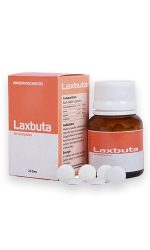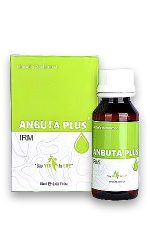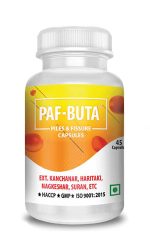Ayurveda, the ancient Indian system of medicine, places great emphasis on harnessing the healing properties of nature’s bounties. With a history spanning thousands of years, Ayurveda has curated an impressive array of herbal ingredients that offer numerous health benefits. In this blog, we will explore ten powerful Ayurvedic ingredients and understand how they contribute to Ayurvedic medicines, promoting holistic well-being.
Green Tea Leaf:
Green tea leaves are renowned for their rich antioxidant content, particularly catechins like epigallocatechin gallate (EGCG). These antioxidants help neutralize harmful free radicals, protecting the body’s cells from oxidative stress. Green tea also contains theanine, an amino acid that aids in relaxation and mental clarity. In Ayurvedic medicines, green tea leaf extracts are commonly used to support digestion, improve metabolism, and enhance overall vitality.
Guduchi Stems:
Guduchi, also known as Tinospora cordifolia, is a well-regarded herb in Ayurveda due to its immune-boosting properties. The stems of Guduchi contain bioactive compounds like berberine, tinosporaside, and giloin, which bolster the body’s defense mechanisms. Guduchi is frequently used in Ayurvedic formulations to promote immunity, combat infections, and support liver function.
Aal Fruits:
Aal, scientifically known as Morus serrata, is a fruit packed with essential nutrients like vitamin C, calcium, and iron. In Ayurvedic medicine, Aal fruits are used to address digestive issues and aid in the management of diabetes. The fruit’s anthocyanins contribute to its antioxidant potential, which helps reduce oxidative damage and supports heart health.
Punarnava Whole Plant:
Punarnava, or Boerhavia diffusa, is a valuable herb in Ayurveda due to its diuretic and anti-inflammatory properties. The whole plant is used to promote kidney and urinary tract health by aiding in the elimination of toxins and excess fluid from the body. Punarnava is also known to support liver function and overall vitality.
Amala Fruits:
Amala, also called Indian Gooseberry, is an extraordinary fruit that boasts a high concentration of vitamin C. This powerful antioxidant helps strengthen the immune system and protects against various infections. Ayurvedic medicines often include Amala to enhance digestion, nourish the hair and skin, and rejuvenate the body.
Haridra Rhizomes:
Haridra, commonly known as Turmeric, is a golden-hued spice celebrated for its anti-inflammatory and antioxidant properties. The active compound in Haridra, curcumin, has been extensively studied for its potential in managing inflammatory conditions. In Ayurvedic medicine, Haridra is used to support joint health, aid in digestion, and promote radiant skin.
Tulsi Whole Plant:
Tulsi, or Holy Basil, holds a revered place in Ayurveda for its adaptogenic and immunomodulatory properties. The whole plant contains essential oils like eugenol and compounds like flavonoids that enhance the body’s resilience to stress and infections. Ayurvedic formulations often include Tulsi to boost the respiratory system, improve digestion, and elevate overall well-being.
Ashwagandha Roots:
Ashwagandha is an ancient Ayurvedic herb that has gained global recognition for its adaptogenic qualities. The roots of Ashwagandha contain bioactive compounds called withanolides, which help combat stress, improve cognitive function, and support the nervous system. Ayurvedic medicines with Ashwagandha are known to enhance vitality, promote sound sleep, and boost energy levels.
Gokshura Fruits:
Gokshura, also called Tribulus terrestris, is a herb commonly used in Ayurveda to support male reproductive health. The fruits of Gokshura contain saponins that aid in hormone regulation, which can be beneficial for men’s vitality and virility. Additionally, Gokshura is used to support kidney and urinary tract function.
Shatavari Roots:
Shatavari, or Asparagus racemosus, is a herb known for its rejuvenating and nourishing properties. The roots of Shatavari are considered to be a potent tonic for the female reproductive system, supporting hormonal balance and easing menstrual discomfort. In Ayurvedic medicine, Shatavari is also used to promote digestive health and soothe the nervous system.
Ayurvedic medicines draw upon the remarkable healing potential of nature’s gifts to promote holistic well-being. The ten Ayurvedic ingredients discussed in this blog, including Green Tea Leaf, Guduchi Stems, Aal Fruits, Punarnava Whole Plant, Amala Fruits, Haridra Rhizomes, Tulsi Whole Plant, Ashwagandha Roots, Gokshura Fruits, and Shatavari Roots, showcase the profound impact of plant-based remedies on human health. Embracing Ayurveda allows us to tap into the wisdom of ancient healing traditions and embark on a journey of wellness that aligns mind, body, and spirit.





